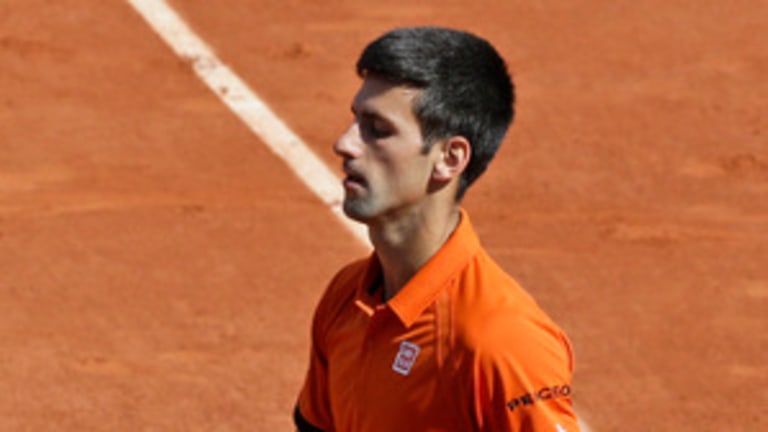1. Stan Wawrinka struck 60 winners, including a tournament-ending backhand that traveled like a TGV, in a stunningly sharp 4-6, 6-4, 6-3, 6-4 victory. Yet Wawrinka’s defense was just as an important a factor in his upset of the world No. 1, who was trying to complete the career Grand Slam in Paris. You knew Wawrinka’s offense would be there today—and it was, perhaps as brutally brilliant as ever—but no one could have envisioned the Swiss covering the court like his limber counterpart. Djokovic’s service games were a trial all afternoon, and Wawrinka’s all-around assault was the reason for it.
Wawrinka was four of 15 on break points overall, but the most important conversion came in the second set, at 4-5. It was a break and set point, of course, but the pivotal chance came after three Djokovic holds in which he was forced to save a break point. It was classic bend-but-don’t-break Djokovic—which would be an apt way to describe the Serb if he wasn’t so good at breaking serve himself.
But Wawrinka’s focus was as good as his forehand today, and he kept pressuring Djokovic when returning serve. Finally, after a long rally, Wawrinka ended Djokovic’s run of service holds, leveled the final at one set apiece, and made observers believe that he could, if he kept playing at such an extraordinarily high level, win it all.
2. Wawrinka did nothing less than that over the final two sets. We’ve seen Wawrinka play imperious tennis before, against Djokovic at multiple majors, against Rafael Nadal in the 2014 Australian Open final, and against Roger Federer just a few days ago. But this may have been his tour de force—emphasis on force. Wawrinka generated pace from every part of the red-clay court, both with his forehand and backhand, and make Djokovic play almost exclusively defensive points. He never allowed Djokovic the chance to take command of this final, even when it seemed like he would. That happened in the fourth set, when Djokovic took a seemingly comfortable 3-0 lead (two holds). But before you knew it, it was 3-3, through no real fault of the eight-time Grand Slam champion.
One place where you can assign blame to Djokovic is when he earned three break points at 4-3 in the fourth set. He had just held off the latest Wawrinka surge, having won four straight points from 15-40. But Djokovic couldn’t crack Wawrinka at a juncture in which, just maybe, a seed of doubt could have germinated into something more.
But even that hypothetical break may have not been enough to derail the Wawrinka high-speed train from its intended destination. Serving for the title, he answered the call yet again, holding serve and nerve despite another Djokovic break opportunity. (On that chance, Djokovic hit an inside-out forehand wide, which seems counterintuitive at a surely nervous moment for Wawrinka. But Stan was only going to be beaten with bold play on this day.) Wawrinka has now was two Grand Slam singles titles, and he’s beaten Nadal, Federer, and Djokovic—the latter twice—en route to those chalices.
